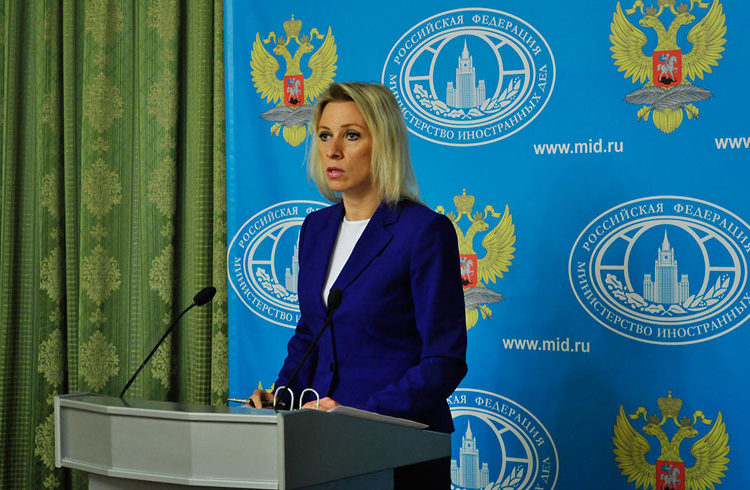Russia denied this Thursday any involvement in the supposed acoustic attacks suffered some months ago by U.S. diplomats in Cuba.
“In relation to the attempts to see a certain interest or a direct or indirect participation of our country in this matter, this is something that is absolutely absurd,” affirmed Russian Foreign Ministry spokeswoman Maria Zakharova.
The diplomat recalled that until now no official information has been reported about the “incident,” which is being extensively discussed in the U.S. media.
“All this takes on grotesque forms. On the one hand, it is grotesque and can make you laugh, but on the other, it is another reason to deal with Russian-U.S. relations based on a focus of confrontation,” the spokeswoman indicated.
Zakharova underlined that in no way Moscow “has participated in any acoustic, sonic or, as some are writing, musical attacks” and that she still hasn’t had any clear conclusions “about the causes and nature of the U.S. diplomats’ suffering.”
“Even taking into account that there are no official affirmations in relation to this, we wish our colleagues from the Department of State good health,” she added.
The U.S. Federal Bureau of Investigation (FBI) and the Cuban government are investigating some presumed “acoustic” attacks, which according to the Department of State took place on the island between late 2016 and the spring of this year. The presumed attacks could have affected the health of several U.S. officials and their families.
The U.S. government decided to expel in May two diplomats from the Cuban Embassy in Washington because it considered that Havana did not appropriately meet it obligation of protecting the U.S. personnel.
The Cuban government denied having led any action against the U.S. employees and showed its disposition to carry out a joint investigation.
In an official communiqué, the island’s Foreign Ministry affirmed that “Cuba has never allowed or will allow Cuban territory to be used for any action against accredited diplomatic officials or their families, without exception.”
Department of State spokeswoman Heather Nauert recently confirmed that the number of Americans affected was 16. However, she said that the causes and those responsible for this mysterious event are still unknown.
Media, like the CNN chain, have reported similar effects on Canadian diplomats.
In relation to this, Maria Zakharova pointed out that according to the Russian embassy in Cuba “the Russian diplomats and citizens are well and there is no information of their being affected by some impact.”
Washington has not specified the nature of the attacks and has not officially confirmed the reports that the diplomats were victim of some “sonic devices” that impaired their hearing.
However, Department of State officials told CNN that their government believes the sophisticated devices that operate outside the audible sound range were deployed inside or outside the residences of the diplomats in Havana and have damaged their health.
According to that same chain, two diplomats who were treated in the United States “suffered long-term damages, including hearing impairment, as a result of the attacks, and they could not return to Cuba,” while others decided to leave the island.
Faced by this, experts cited by the U.S. media opine that the question is not just what type of weapon could have been used, but rather if the damage was even caused by a weapon.
Although a multi-institutional investigation is being carried out, the publicly available information is to a great extent anecdotic and is not a good base to come to conclusions, these experts warn. They point out a series of factors that present doubts, among them the fact that the sonic weapons do not produce consistent results.
EFE / OnCuba










